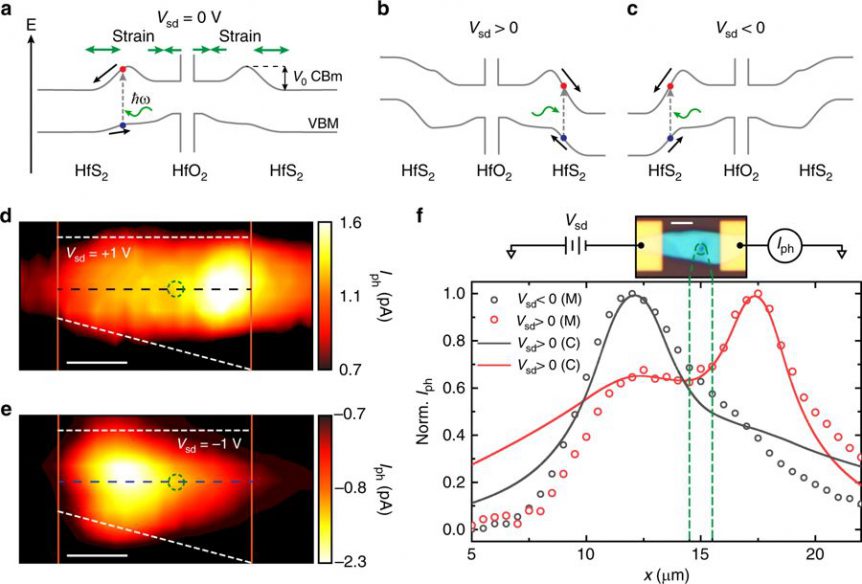Dr. Adolfo De Sanctis, a Research Fellow in the Quantum Systems and Nanomaterials group at the University of Exeter (UK), earned his Ph. D. in physics with a dissertation on “Manipulating light in two-dimensional layered materials” (Nature Communications, May 2017). The video below gives a short-hand view of his work. Other, less scholarly outlets (like this one) give an easy-to-read view of what he has accomplished, and why his research is of interest for many applications – including energy harvesting. Green Optimistic reports, “A team of researchers from the University of Exeter developed a solar cell with a record 60% efficiency. The idea behind this breakthrough is similar to using a ‘funnel’: corralling an amorphous collection of electrical charges into a more precise area, where they can be transferred into use. Using this idea, the researchers increased the efficiency of a solar cell from 20 to 60 percent. The Exeter team sees their research as a ‘gateway’ for further research …
Battery Options for Range and Longevity
Two varying approaches to battery development may hold clues to future directions for energy storage. At the same time, their announcements, promising as they seem, reinforce our cautious attitudes toward how battery performance numbers are presented. PNNL Attacks the Electrolyte Issue According to Green Optimistic, “Researchers from the Pacific Northwest National Laboratory (PNNL) have developed a new formula for battery’s electrolyte solution to enhance its performance unprecedentedly in terms of its service life and storage capacity or an electric vehicle’s range.” The video gives an overview of what it takes to make a battery and hints at the reasons battery research takes so long to give up improved energy storage devices. Unprecedented the development may be, and the promise of a battery with a 7X longer lifespan and two-to-three times longer range than currently-available batteries certainly captures our attention. Its own press release suggests that PNNL researchers are enthusiastic about the longevity of their new chemistry. “When it comes to …


